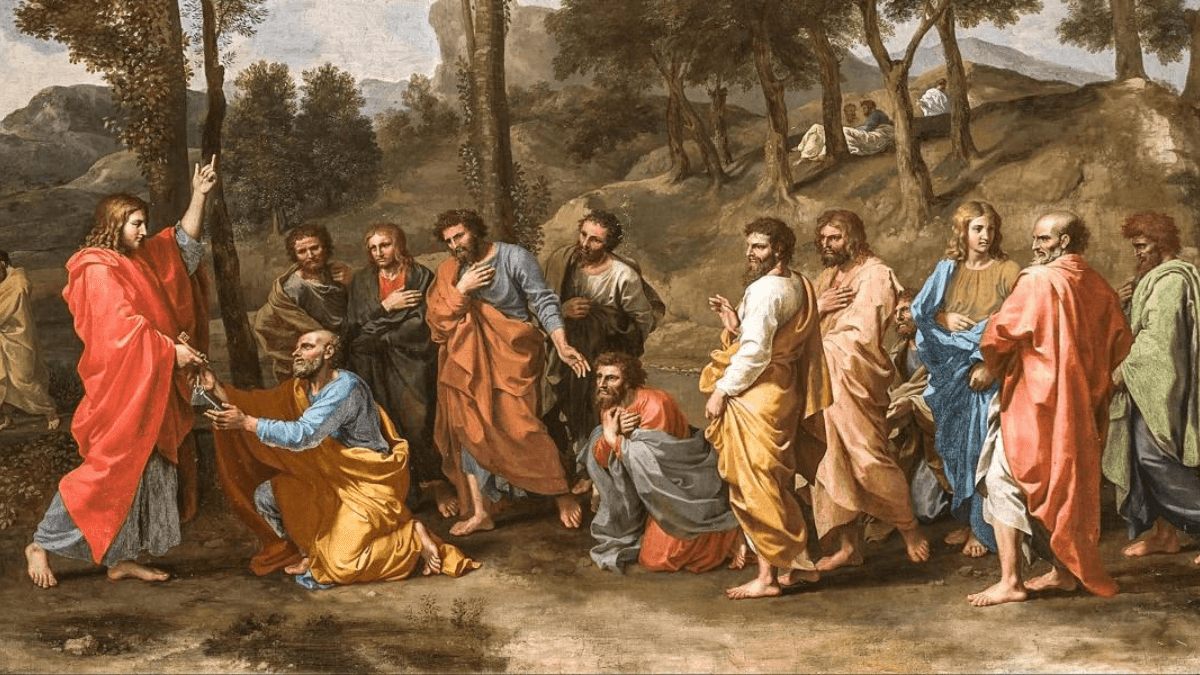On the Back Porch
Reading, pondering and studying God’s Word is sometimes best done “on the back porch.” Each week we will try to offer something for you and your “back porch time.”

24th Sunday, Year B

What We Celebrate
As the story line in Mark’s Gospel reaches Caesarea Philippi, we arrive at the first major climax of Mark’s Gospel – the second being the Passion and Crucifixion. Until now, Mark has been revealing who Jesus is in the mighty deeds he has done. Along with this revelation, Mark has also reported Jesus’ reluctance to have people believe in him only because of those wondrous deeds. This Caesarea Philippi passage comes to the heart of the matter.
Jesus has heard the “buzz” about what the people think of him, but Jesus asks the disciples “point blank”: “But who do you say that I am?” Peter said to him in reply, “You are the Messiah.” There is a lot of room for speculation on what Peter expected of the Messiah, but before that is explored Jesus makes clear that the way of the Messiah is the way of the cross: “Whoever wishes to come after me must deny himself, take up his cross, and follow me.”
As always, a lot going on in the gospel reading. Grab a cup of your favorite beverage and take a moment on the back porch with the Word of God.
Full Text of the Sunday Readings
Detailed Commentary
Image credit: Christ Presenting the Keys to Saint Peter | Nicholas Poussin | Metropolitan Museum | Public Domain
Bishop Barron preaching on the 2nd Reading: James 2:14-18
Son of the Living God
When asked about Jesus’ identity, Peters responds “You are the Messiah” – that’s in Mark’s Gospel. But in the Gospel of Matthew, there is the additional phrase: “Son of the Living God.” Is there something new or at least amplifying about that additional phrase. Take a moment to explore the meaning with Dr. Tim Scott of the Augustine Institute.
Clearly this passage points to suffering and death as being at the heart of God’s plan of redemption and salvation. The passage does not explain why this is the plan, it just insists that this is the way it will be. It sets up a dissonance to our way of thinking. Clearly the accounts of Jesus to this point in the Gospel reveal his cosmic powers over nature, death, illness, demons and more. How can he then permit the enemies who wish to destroy him ultimately succeed? Perhaps now we have some insight into St. Paul’s insistence that the gospel of the cross makes a mockery of our human concepts of success.
18 The message of the cross is foolishness to those who are perishing, but to us who are being saved it is the power of God.19 For it is written: “I will destroy the wisdom of the wise, and the learning of the learned I will set aside.”20 Where is the wise one? Where is the scribe? Where is the debater of this age? Has not God made the wisdom of the world foolish?21 For since in the wisdom of God the world did not come to know God through wisdom, it was the will of God through the foolishness of the proclamation to save those who have faith.22 For Jews demand signs and Greeks look for wisdom,23 but we proclaim Christ crucified, a stumbling block to Jews and foolishness to Gentiles,24 but to those who are called, Jews and Greeks alike, Christ the power of God and the wisdom of God.25 For the foolishness of God is wiser than human wisdom, and the weakness of God is stronger than human strength. (1 Cor 1:18-25)